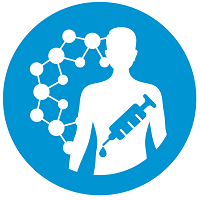Preclinical, Clinical, and Translational Sciences
Symposium: New Frontiers of Drug Development Through the Use of Non-Animal Models and Imaging
Organoids Unleashed: Engineering Mini-Organs in a Dish to Accelerate Veterinary and Comparative Pharmaceutical Research
Monday, November 10, 2025
9:00 AM - 9:30 AM CT
Location: 225 AB

Jonathan Mochel, DVM, PhD, DECVPT
Director, Precision One Health Initiative, Professor of Systems Pharmacology
College of Veterinary Medicine/University of Georgia
Athens, Georgia
Speaker(s)
The Precision One Health Initiative (POHI) at the University of Georgia is pioneering the development of adult stem cell-derived 3D organoids from veterinary species to streamline preclinical (human and veterinary) drug development. These models serve as in vitro screening tools for evaluating drug safety, efficacy, and exposure-response relationships, reducing reliance on live animal testing in alignment with the FDA’s commitment to the 3Rs (Replacement, Reduction, Refinement). Importantly, the use of 3D organoids provides a high-throughput method for assessing new compounds in tissues that reflect the targeted species (and, in some cases, tissues from the disease in question) thereby avoiding the pitfalls that can accompany interspecies extrapolations.
As a proof of concept, Dr. Jon P. Mochel, Director of the POHI at the University of Georgia, will present ongoing research efforts to develop and deploy companion animal-derived organoids. Along with its direct relevance to human medicine, the development of 3D organoids in dogs and cats can be used to support our understanding of homologous diseases and to facilitate the collaboration and data sharing in novel therapeutics targeting the canine and human patients.
FDA Collaboration and Translational Relevance:
The POH program operates under a 5-year Research Collaboration Agreement with the U.S. Food and Drug Administration’s Center for Veterinary Medicine. Dr. Mochel’s lab leads the development and application of animal organoid systems that recapitulate native tissue architecture and function. These models enable rigorous evaluation of pharmacokinetics, pharmacodynamics, and toxicity while mirroring naturally occurring diseases in veterinary patients—offering a promising new tool for regulatory science and drug development.
Presentation Highlights:
1. Spontaneous Disease Models: Canine and feline organoids reflect clinically relevant pathologies such as cancer, gastrointestinal inflammation, and kidney injury, conditions that are biologically and histologically aligned with human diseases.
2. Human-Relevant, Non-Animal Testing: These organoids enable middle- to high-throughput, reproducible testing in a physiologically relevant format, addressing key limitations of traditional in vitro systems.
3. Regulatory Impact: The models provide mechanistic insights into exposure-response relationships and drug safety, contributing to next-generation regulatory frameworks consistent with the FDA Modernization Act 2.0.
As a proof of concept, Dr. Jon P. Mochel, Director of the POHI at the University of Georgia, will present ongoing research efforts to develop and deploy companion animal-derived organoids. Along with its direct relevance to human medicine, the development of 3D organoids in dogs and cats can be used to support our understanding of homologous diseases and to facilitate the collaboration and data sharing in novel therapeutics targeting the canine and human patients.
FDA Collaboration and Translational Relevance:
The POH program operates under a 5-year Research Collaboration Agreement with the U.S. Food and Drug Administration’s Center for Veterinary Medicine. Dr. Mochel’s lab leads the development and application of animal organoid systems that recapitulate native tissue architecture and function. These models enable rigorous evaluation of pharmacokinetics, pharmacodynamics, and toxicity while mirroring naturally occurring diseases in veterinary patients—offering a promising new tool for regulatory science and drug development.
Presentation Highlights:
1. Spontaneous Disease Models: Canine and feline organoids reflect clinically relevant pathologies such as cancer, gastrointestinal inflammation, and kidney injury, conditions that are biologically and histologically aligned with human diseases.
2. Human-Relevant, Non-Animal Testing: These organoids enable middle- to high-throughput, reproducible testing in a physiologically relevant format, addressing key limitations of traditional in vitro systems.
3. Regulatory Impact: The models provide mechanistic insights into exposure-response relationships and drug safety, contributing to next-generation regulatory frameworks consistent with the FDA Modernization Act 2.0.
Learning Objectives:
- Upon completion, participant will be able to appreciate the wide diversity in NAMs approaches currently available and these different approaches are being implemented in a real-world setting.
- Upon completion, participant will be able to understand the qualifications and robustness needed to support NAMs data outcomes, enabling a more critically examination of the published research using these tools.
- Upon completion, participant will be able to identify the qualifications necessary to support the NAMs data outcomes from their own laboratory, thereby supporting the robustness and reliability of their research.
- Upon completion, participant will be able to understand how veterinary-derived 3D organoids can model spontaneous diseases and improve translational relevance in preclinical drug development.
- Upon completion, participant will be able to describe the scientific advantages of using animal-derived organoids to assess drug safety, efficacy, and pharmacokinetics.

